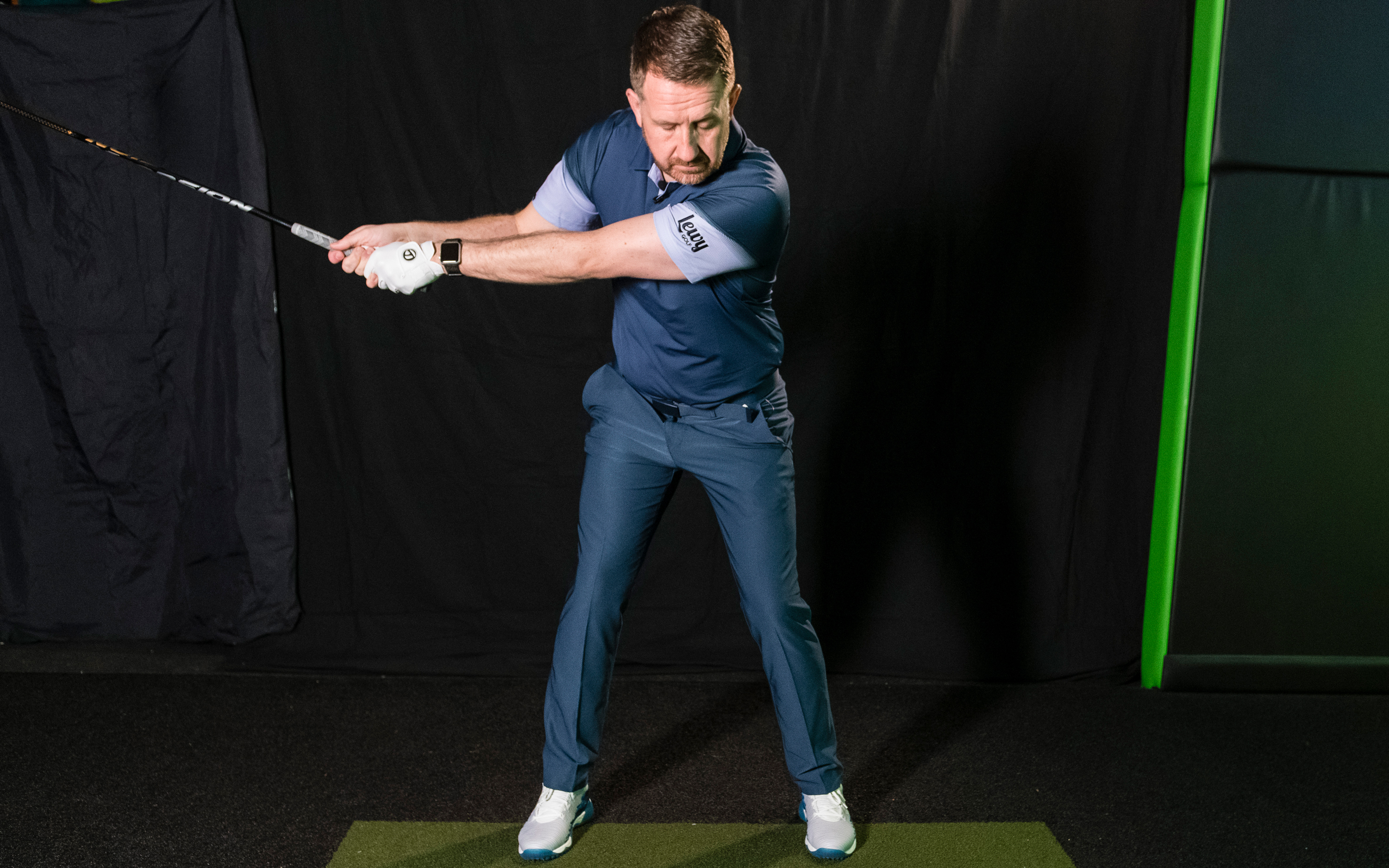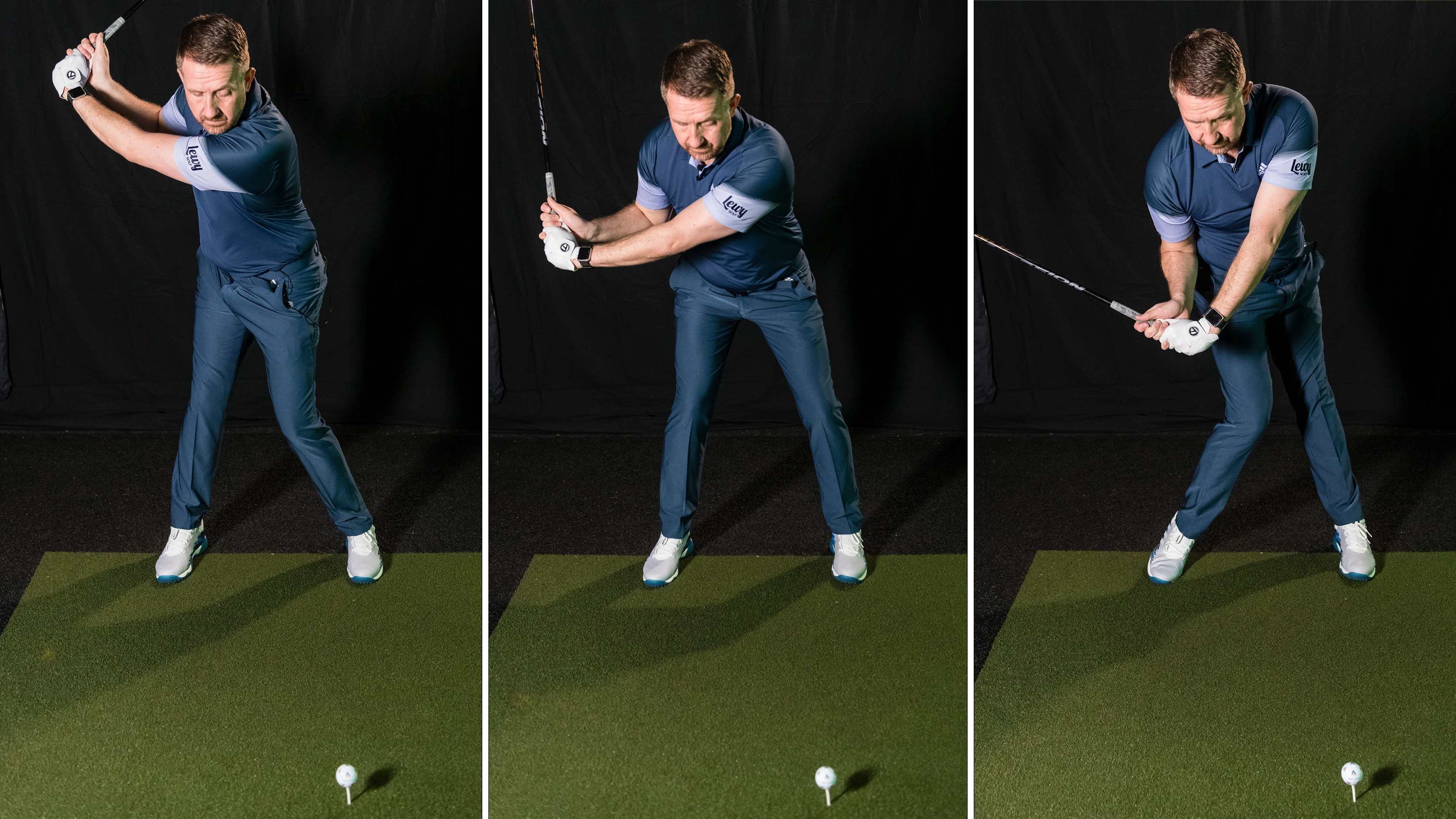What Is Lag In The Golf Swing And How To Create It
You might be wondering... what is lag in the golf swing? Well wonder no more, as PGA Pro Gareth Lewis shares everything you need to know


Golf Monthly created this content as part of a paid partnership with TaylorMade. The contents of this article are entirely independent and solely reflect the editorial opinion of Golf Monthly.
Creating lag in the downswing is something the world's longest hitters all have in common, but what is lag in the golf swing? In the video and article below, PGA pro Gareth Lewis answers that question and shares everything you need to know about creating lag...
What is lag in the golf swing?
To put it simply, lag is the angle between the left forearm (right for right-handed golfers) and the club. It's important to create and maintain the angle for as long as possible, before releasing it through impact.
When you make a backswing, you ideally would like to see around 90-degrees between your forearm and the club. Don't become too obsessed with this though, as lag is a by-product of good movement, and overthinking it can cause some common swing faults.
If you don't create much lag in your swing, it's likely that you cast the golf club. Casting is the angle set in the backswing being released way too early, which can happen for a number of reasons.
If you struggle with a slice, casting early can feel like you are squaring the clubface. This movement will cost you lag, and ultimately distance, so is best avoided.

Casting can lead to slices as the body stalls and the club is sent on an out-to-in path
Casting can also be a problem for golfers who sway. Shifting your body too far in front of the ball before impact can cause the low point of your swing to move forward. To counter this, players tend to throw away the lag, which brings the low point back towards the ball.
Subscribe to the Golf Monthly newsletter to stay up to date with all the latest tour news, equipment news, reviews, head-to-heads and buyer’s guides from our team of experienced experts.
This will result in a loss of distance and accuracy, as you are relying purely on timing. A good driver address position will make it easier to make an effective backswing, and a proper golf downswing sequence will ensure you’re able to maintain the angle created.
Proper sequencing
The perfect technique will see the body unwinding from the ground up. That means rotating your hips for power, with the hands and arms feeling like they remain in place. The upper body will then turn through, allowing the arms to slot into place. By creating lag properly, you should also notice the weight of the clubhead puts some strain on the shaft.
Doing this is one of the best ways to increase your swing speed. More speed equals more distance, so if this is something you struggle with, here’s a handy drill that will help.

As you start the downswing, feel like you pull the handle of the club straight down
Swing to the top and imagine the shaft is a bathroom light switch. As you start the downswing with your hips, feel like you’re pulling the string straight down and turning the light off.
It’s vital to remember that it needs to be straight down. Don’t move it away from the body or pull it down before the hips. Practice this feeling at the range, as this will help you retain lag and put you in a great position to rotate through impact to get more power in your golf swing.

Gareth is a well respected professional with over 20 years experience. Gareth has previously worked at various high profile and world-renowned facilities, the most recent being Royal St.David's Golf Club in Harlech, North Wales, where he held the position of Club Manager and Head Professional.
He has a passion for coaching, custom fitting and retail and also enjoys regularly competing and playing socially. Gareth has had success coaching players of all abilities from a Welsh Professional Champion and Welsh Amateur Internationals to the absolute beginner. Gareth's passion for all sports and enthusiasm to continue learning makes his coaching style very adaptable and relatable, which is why he also has a good track record of coaching elite athletes from other sports. More details can be found at www.lewygolf.co.uk